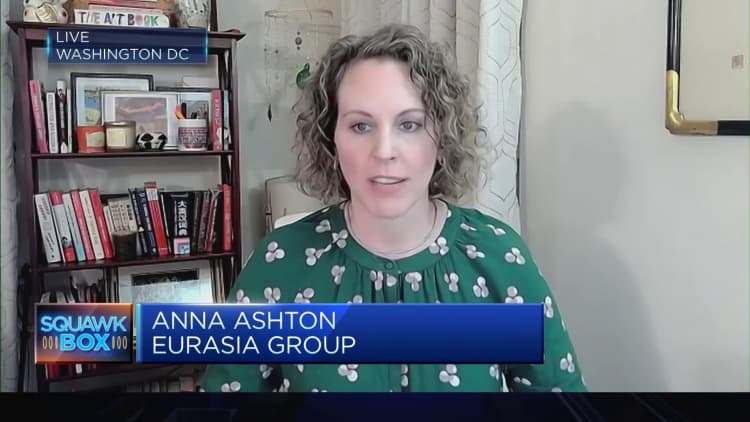[ad_1]
U.S. Secretary of State Antony Blinken (L) meets with State Councilor and Foreign Minister of China Qin Gang in Beijing, China on June 19, 2023.
Foreign Ministry of China | Anadolu Agency | Getty Images
BEIJING — The flurry over Qin Gang’s disappearance and removal from the position of foreign minister has little impact on U.S.-China relations, analysts said.
Qin had only held the position for about six months before he disappeared from public view in late June — with little explanation. China officially announced his dismissal from the foreign minister role on Tuesday.
China’s top diplomat Wang Yi is reassuming the foreign minister role, a position he held for two terms before his promotion late last year within the ruling Chinese Communist Party. He has met with U.S. Secretary of State Antony Blinken twice in the last two months.
“China’s foreign minister is an implementer of decisions made by [Chinese President] Xi Jinping and his close circle; their role in actual policy formulation is relatively limited,” said Nick Marro, global trade leader at The Economist Intelligence Unit.
“We don’t expect the recent events to have a significant impact on China’s diplomatic relations,” he said. “That said, the opacity attached to all of this drama will complicate some of the logistics underpinning foreign engagement.”
China’s foreign ministry has declined to shared why Qin had to leave his position.

While Wang’s return to the foreign minister role is unusual, his promotion to top diplomat had also come contrary to expectations of retirement.
Xi meanwhile has broken precedent by taking a third term as president in March, and installing loyalists in top positions without the same government experience as their predecessors.
“In returning Wang to the helm at the foreign ministry, Xi appears to have opted for a steady pair of hands over any of the younger crop of candidates, buying time for potential successors to be fully vetted and groomed,” said Eurasia Group’s Jeremy Chan, consultant for China and Northeast Asia, and Anna Ashton, director for China corporate affairs and U.S.-China.
“Wang’s oversight of policy implementation is therefore likely to strengthen the consistency of Beijing’s diplomatic messaging and actions, while further cementing the party’s already strong guidance of foreign affairs,” the Eurasia Group analysts said in a note.
While pressuring China has become an area of rare bipartisan agreement in the U.S., critics say the Biden administration has not had a comprehensive China strategy.
What happened to Qin?
Qin was one of the few younger officials to move up quickly in the latest leadership reshuffle. A career diplomat, he was China’s ambassador to the U.S. for less than two years before becoming foreign minister.
“The issue is Qin was elevated really very rapidly within a very short time,” said Dali Yang, political science professor at The University of Chicago. “That also meant that he needed to be seen as truly up and coming and rising — but he needs to be exemplary.”
“That fact becomes a major consideration when it’s harder for Xi to protect him,” Yang said.
The Chinese foreign ministry’s website has mostly deleted references to Qin and his speeches, leaving the bio page for the foreign minister and records of his activities as blank — with only the words “updating.”
Earlier this month, the ministry said Wang would attend a diplomatic gathering instead of Qin due to the latter’s health issues, Reuters said.
“Clearly in the U.S. and so on there would be lots of reports on what happened,” Yang said.
“What’s remarkable is there’s so many rumors and in fact a lot of the rumors are allowed to circulate to such an extent yet the authorities totally avoided referring to the rumors. By doing so they give a lot of space to the rumors to circulate.”
Officially, Qin retains his position of state councilor and is a member of the Chinese Communist Party’s central committee, the third-highest circle of power.
In May, Xie Feng became China’s ambassador to the U.S., filling a role that was left open for months after Qin’s departure.
Communication between the U.S. and China has picked up, with U.S. Treasury Secretary Janet Yellen and John Kerry, special presidential envoy for climate, visiting Beijing this summer.
“At this point there is a desire to at least not try to be confrontational on every respect,” Yang said. “This is a real meaningful relationship, not simply a relationship between two rivals in all respects.”
“The challenge is the election season in the U.S. is coming up, and the rhetoric can become hotter.”
[ad_2]
Source link